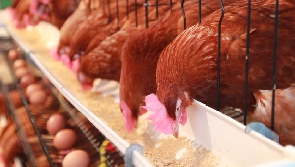Farmers in Pong-Tamale in the Northern Region have called for better implementation of the Rearing for Food and Jobs (RFJ), a government agricultural initiative to support the livestock industry, to ensure all poultry farmers benefit. They said the implementation of the RFJ was such that it benefitted a few poultry farmers in the area, thereby affecting the businesses of other farmers within the industry. Mr Emmanuel Tetteh Laryea, a poultry farmer, in an interview with the Ghana News Agency, said beneficiaries of the RFJ sold their poultry products cheaper than the ideal price, making it difficult for the other producers, who did not benefit, to sell for profit or break even. “The programme benefitted few farmers, who receive subsidies and do not go through the heat of the whole cost of production. They sell their eggs cheaper and that affects the market of those who take up the production cost from scratch to finish,” he said. He noted that although a crate of eggs was sold at Gh¢35.00 in the area, the RFJ beneficiaries sold theirs for Gh¢30.00, making it difficult for non-beneficiaries to penetrate the market. Mr Laryea said a tonne of poultry feed cost him Gh¢4,500,00 and selling eggs lower than the market price would earn him no profit. “Some poultry farmers, who were unable to meet up with the competition, have stopped production,” he added. Mr Samuel Ampofo, another poultry farmer, said returns from the sales of poultry products did not match the cost of production, the reason he stopped production. He said the RFJ was a laudable initiative, however, its mode of implementation, which catered for a section of farmers, had negatively impacted individual poultry farmers. Meanwhile, the GNA has gathered that poultry farmers at Pong-Tamale are unable to meet the demands of customers in terms of supply because many have stopped production. The RFJ is a five-year (2019 – 2023) government flagship programme under the Planting for Food and Jobs.













